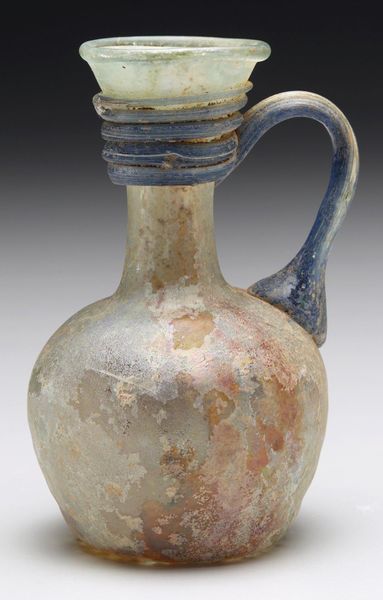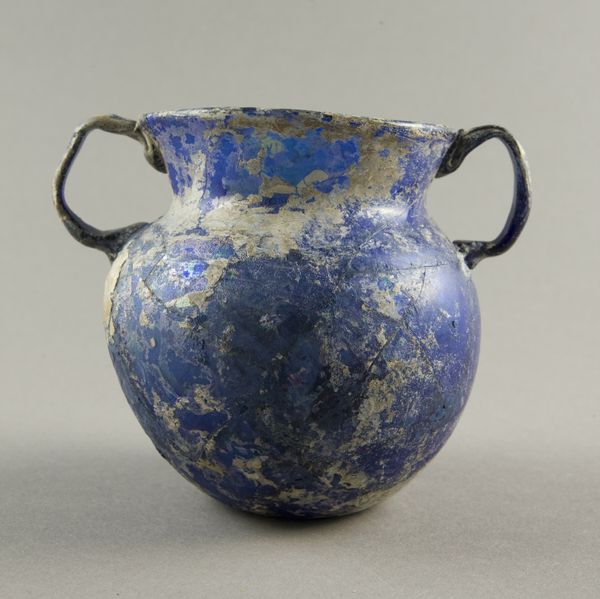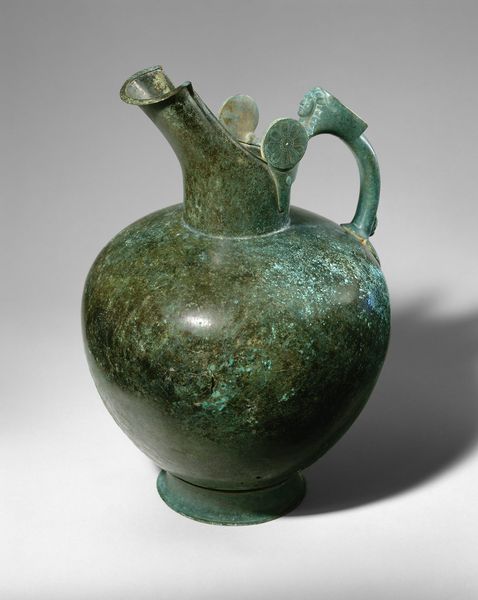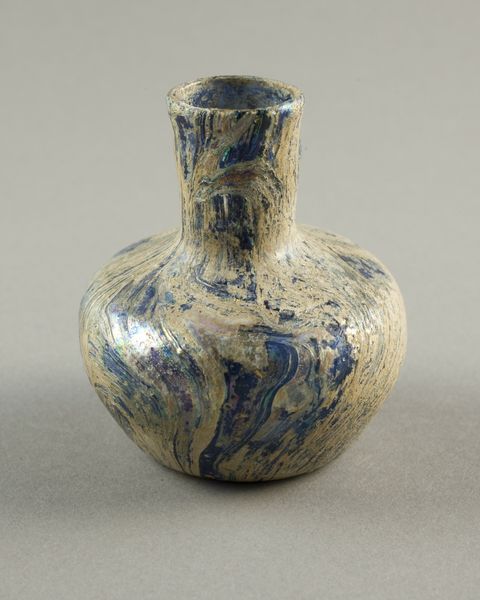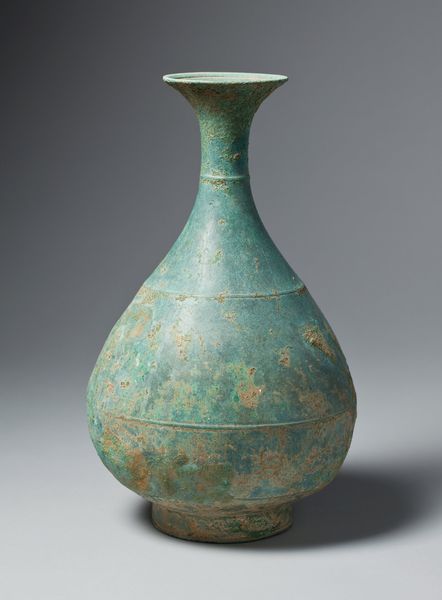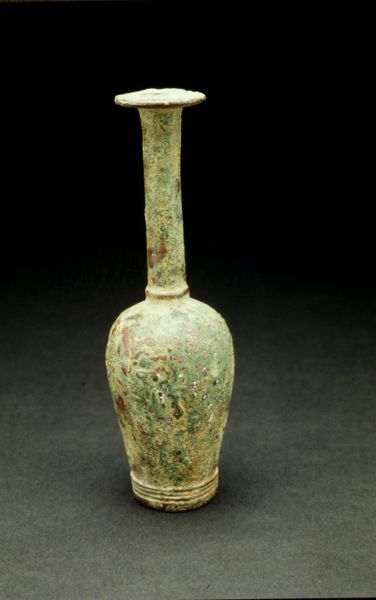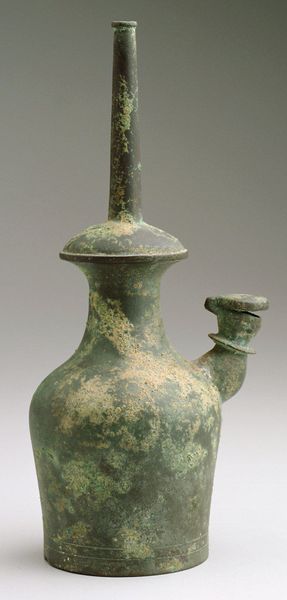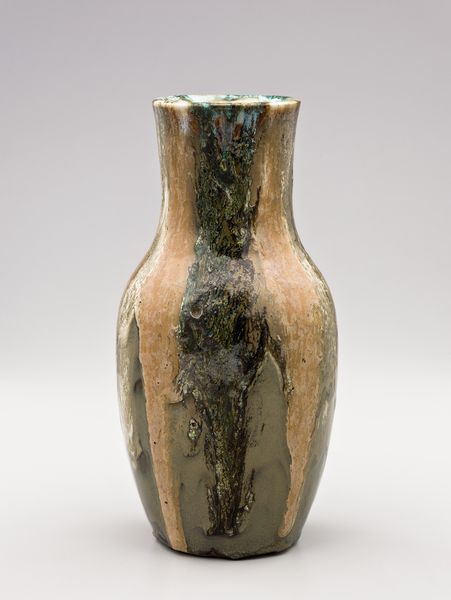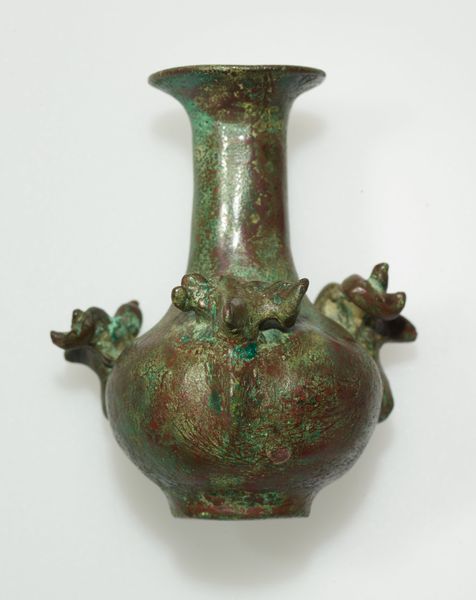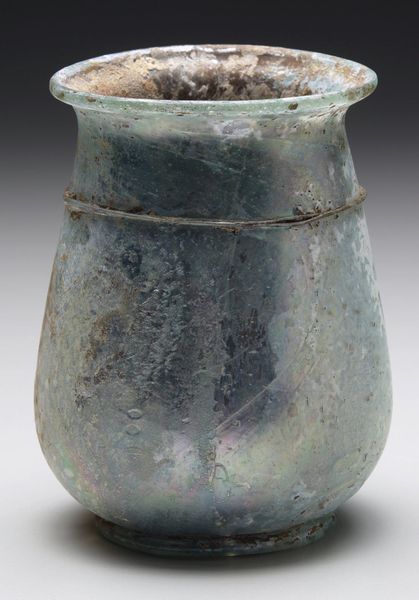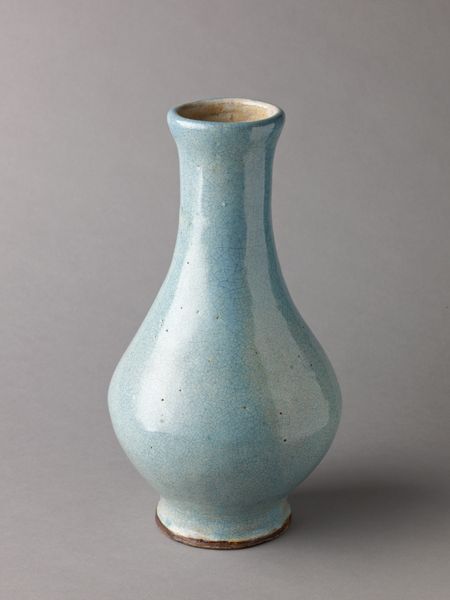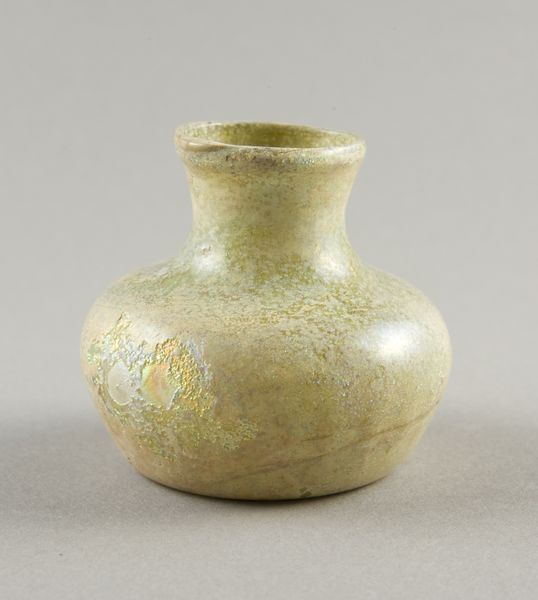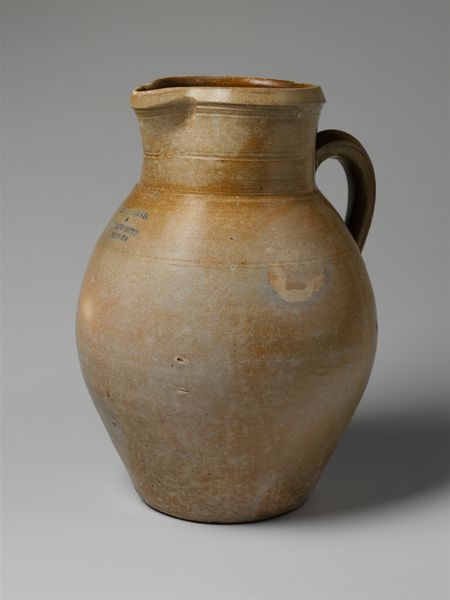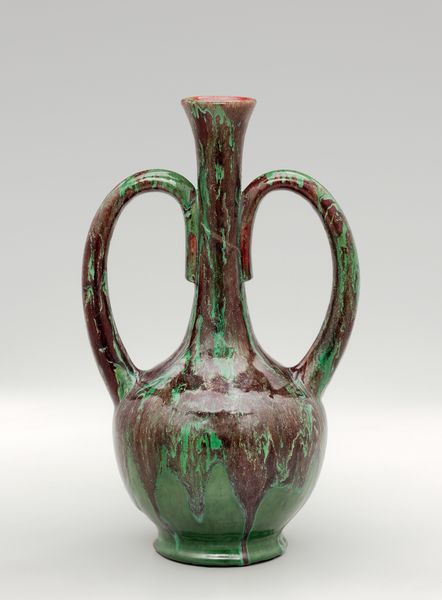
ceramic, glass
#
ceramic
#
glass
#
ancient-mediterranean
#
ceramic
#
islamic-art
Dimensions: H. 10.8 cm (4 1/4 in.); diam. 7.3 cm (2 7/8 in.)
Copyright: Public Domain
Editor: This captivating little jug, simply titled "Flask," dates back to between the 7th and 13th centuries. It’s crafted from both ceramic and glass and is currently held at the Art Institute of Chicago. The material's aged surface and the soft green hue give it such a serene, almost meditative quality. What stands out to you in this piece? Curator: Its seeming simplicity belies a depth of symbolic resonance, I think. This small, functional object carries within it echoes of entire cultures and belief systems. Consider the rounded form – the circle, the sphere. Universally, these shapes evoke notions of completion, eternity, the cyclical nature of life. Editor: I see what you mean. The roundness does feel very fundamental, almost like an egg or seed. Curator: Precisely. And the colour. Think about the cultural significance of green, especially within Islamic art, where it often symbolizes paradise, renewal, and hope. Do you see how these elements begin to coalesce? The humble flask becomes a vessel not just for liquid, but for meaning. Editor: So, it's not just a container, but a symbol. That’s fascinating. Curator: Yes, the translucence of the glass adds another layer, allowing light to pass through, suggesting enlightenment, divine illumination, and the accessibility of knowledge. What do you make of the ceramic element? Editor: I didn't see how symbolic the vessel was until now. This was definitely insightful. Thank you. Curator: It speaks of how functional objects became imbued with layered symbolic intent across eras. A valuable insight, I think!
Comments
No comments
Be the first to comment and join the conversation on the ultimate creative platform.
